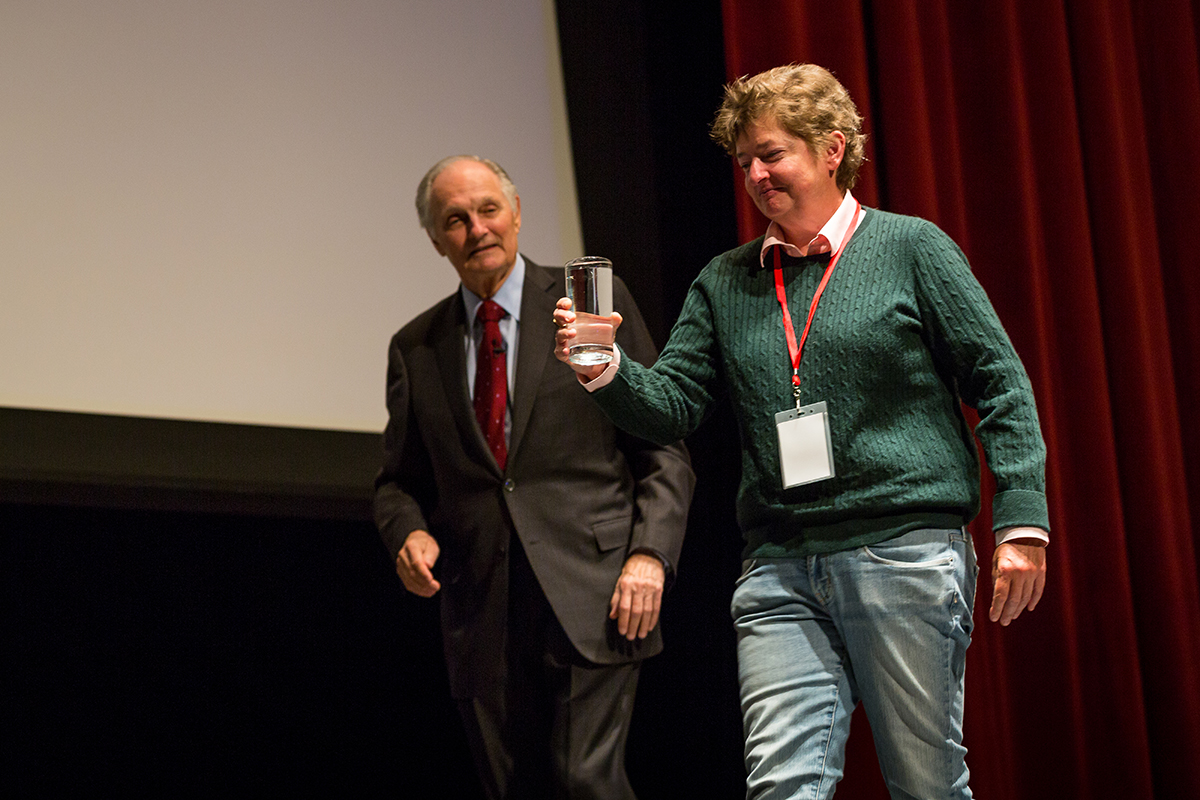Alda: Convey science clearly to reveal its beauty, poetry
By Blaine Friedlander

Actor, director, writer and champion of science Alan Alda provided a communication mandate May 16 at Bailey Hall for Cornell’s faculty and researchers: Use plain language to be clear.
“We want to get the public to have a loving relationship with science,” Alda said. “Science is beautiful, science is music, science is poetry. Remember how amazed we were when they told us that the whales could sing? And now they tell us that gravity waves make the whole universe sing. It’s a gorgeous thing.”
Years after playing the iconic role of Hawkeye Pierce in the television show “M*A*S*H,” Alda hosted “Scientific American Frontiers” on PBS, which led to his interest in communicating science. He has been using that experience to help scientists relate their work, ideas and concepts more effectively to the public and the media.
Never once hiding behind the lectern, Alda walked the stage, talking, pausing and engaging – and reading faces in the audience – using perfect timing for humor and adding a hint of self-deprecation to get points across, as he told several stories about communication from his own experience.
Scientists need to connect to lay people and to have empathy for another person who doesn’t have scientific training. “What helped me to be communicative and to be free and open in these conversations was that I had studied improvisation as a young actor,” said Alda. “It opened me up as performer and as a person.”
He continued, “The essence of acting – for me – was this relationship with the other actor. … It’s the connection we have with the other person. Life happens when you are in total responsiveness, a total state of responsiveness to the other person. It’s like a leaf in the wind, it happens instantaneously.”
As part of Stony Brook University’s Alan Alda Center for Communicating Science, the actor uses improvisational theater and other techniques in workshops to help scientists communicate clearly and engagingly. The workshops were held at Cornell in 2013 and offered again in 2016 to researchers and associates of the Kavli Institute at Cornell for Nanoscale Science, host of Alda’s visit.
Beyond talking, Alda illustrated the importance of telling stories. Melissa Hines, professor of chemistry and chemical biology, helped Alda tell a dramatic story: She took an empty glass and walked with it across the stage. Alda then filled the glass with water – to the brim – and asked Hines to walk back, without spilling a drop.
The audience was mesmerized, as Hines kept the stage dry and placed the glass on a table; the audience erupted in applause.
Alda noted how the audience watched the professor cross the stage: “Which trip across the stage was more engaging? It’s not that interesting to carry an empty glass. But when there’s an obstacle in the way, or there’s a real challenge, we can’t take our eyes off the person who’s trying to accomplish something against the odds. That is what makes a story.”
Then, addressing the faculty in the audience, Alda explained: “Every experiment is a story. … Every scientist’s life and work is a great story.”
Media Contact
Get Cornell news delivered right to your inbox.
Subscribe